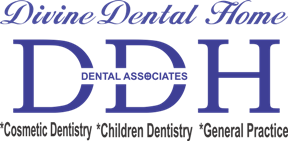
Good proper oral health care is essential for healthy teeth and gums. This includes daily brushing and flossing. In addition, you should see your dentist regularly for dental exams and cleanings. Preventative dentistry gives you the best chance for a beautiful smile and long-lasting oral health.
What is oral health care?
Oral health care is the practice of keeping your mouth clean and disease-free. It involves brushing and flossing your teeth as well as visiting your dentist regularly for dental X-rays, exams, and cleanings.
Oral health is a key indicator of overall health, well-being, and quality of life. It encompasses a range of diseases and conditions that include dental caries, periodontal (gum) disease, tooth loss, oral cancer, oro-dental trauma, noma, and birth defects such as cleft lip and palate.
Why is oral health care important?
Oral health care is preventative care. This means you can stop oral health problems — such as cavities, gum disease, bad breath (halitosis), and other issues — before they start by taking good care of your teeth and gums.
Oral health is also linked to whole-body health.
For example, if an infection is present in your mouth, your bloodstream can carry the bacteria to other areas of your body, leading to other oral health concerns like heart disease and stroke. Keeping your teeth and gums healthy is an important part of long-lasting overall health.

What conditions are linked to oral health?
- Stroke
- Endocarditis (infection of your heart’s inner lining).
- Pneumonia
- Pregnancy complications, such as premature birth and low birth weight.
Most oral diseases and conditions share modifiable risk factors with the leading noncommunicable diseases (cardiovascular diseases, cancer, chronic respiratory diseases, and diabetes). These risk factors include tobacco use, alcohol consumption, and unhealthy diets high in free sugars, all of which are increasing at the global level.
There is a proven relationship between oral and general health care. It is reported, for example, that diabetes is linked with the development and progression of periodontitis. Moreover, there is a causal link between high consumption of sugars and diabetes, obesity, and dental caries.
Signs of poor dental health
Several warning signs could indicate oral health problems. The most common signs of poor oral hygiene include:
- Bleeding gums.
- Tooth decay.
- Chronic bad breath.
- Loose teeth.
- Gum recession
- Mouth sores that don’t go away.
- Toothache.
- Swelling of the jaw.
- Gingivostomatitis, is an infection of the mouth caused by certain bacteria or viruses.
10 must-have things to improve good dental health
1. Brush Your Teeth Twice A Day
The first thing that will improve your health is brushing your teeth.
2. Floss At Least Once A Day
Flossing helps clean in between your teeth and get rid of anything that’s sneakily lodged in the gaps between your teeth.
3. Use Mouthwash
Mouthwash is a great way to clean your mouth and get rid of bacteria. One top tip is not to use it after you’ve brushed. Otherwise, you’ll rinse away the fluoride from the toothpaste you used.
4. Use Toothpaste With Fluoride
Fluoride toothpaste is great for helping your teeth stay strong. It will help keep them healthy for a long time and prevent tooth decay.
5. Regular Dentist Visits
The best way to maintain good oral hygiene is to see your dentist regularly. Make regular appointments, Ensure you get your mouth checked every few months.
6. Don’t Smoke
Smoking is awful for your general health and terrible for your mouth too. It leads to stained teeth, and gum diseases. And a whole host of other problems.
7. Change Your Toothbrush Regularly
It’s easy for your toothbrush to become worn and frayed. When this happens, you need to change it.
8. Get An Electric Toothbrush
An electric toothbrush is far better than a normal one. It offers greater cleaning power, meaning you can rid your mouth of more bacteria.
9. Chew Gum After Eating
Chewing some sugar-free gum is a great way to protect your mouth between meals. It’s especially important to do this if you eat sugary foods. It will keep your breath nice and fresh too.
10. Learn The Proper Brushing Technique
People aren’t aware that there’s an art to brushing your teeth. You can’t be too aggressive, or you’ll cause your gums to bleed. For good oral hygiene, ensure you brush each tooth around 10-15 times.





